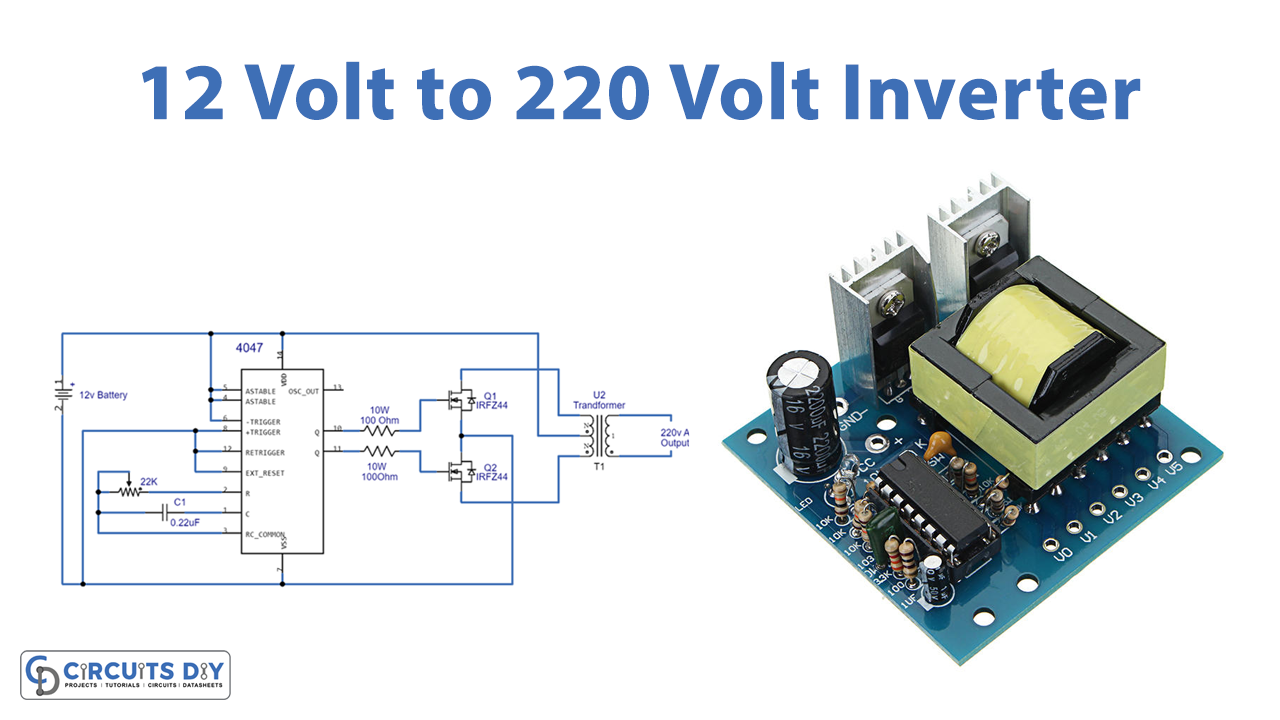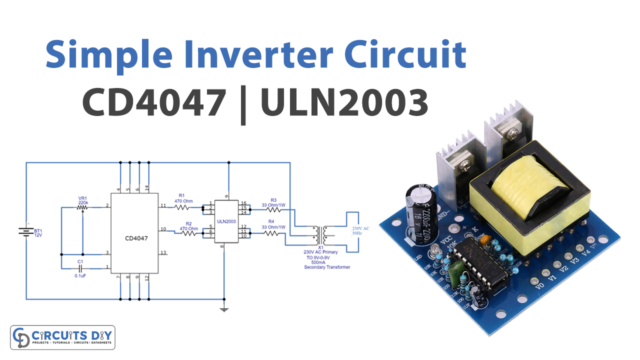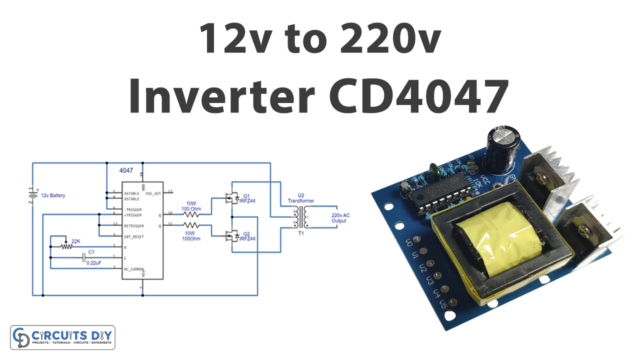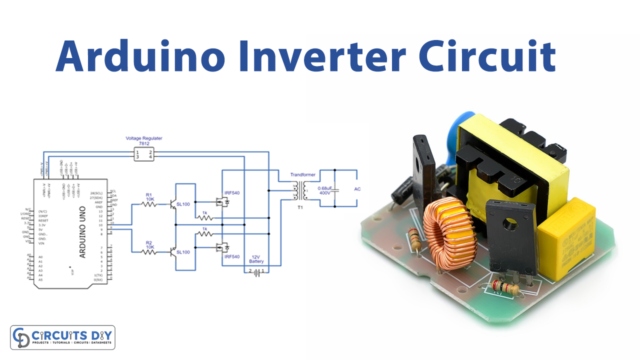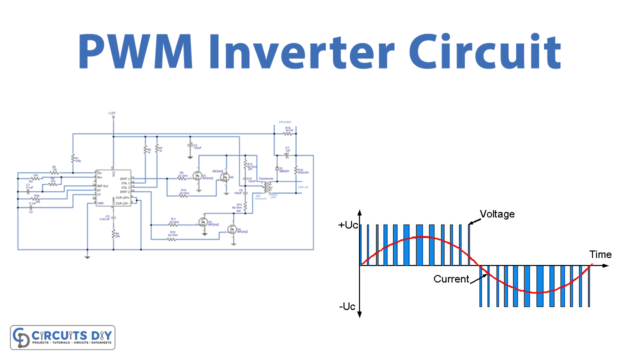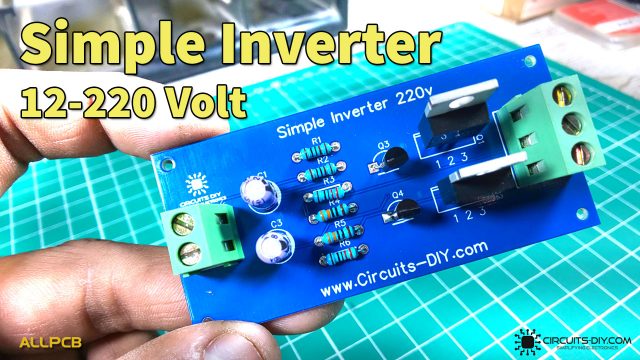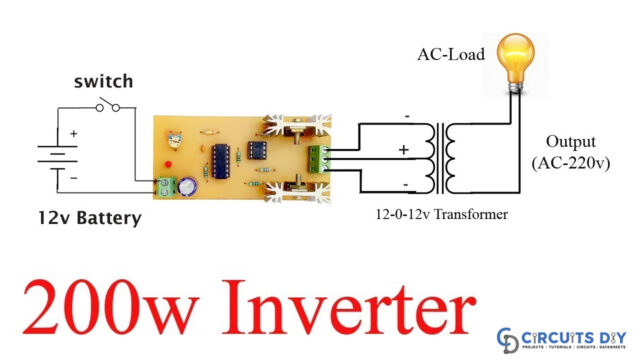Introduction
When an engineer requires to convert DC into AC power, there are several ways to make an inverter. So, we thought why not try making an inverter using a battery of 12 Volts? Just 12 volts and we can get 220V AC at the output. So, maybe the question arises that the circuit then needs a lot of components to boost up the voltage. But, no! the circuit is so simple that it only needs four components. But how? We will get the answer to this question while making the circuit. So, in this tutorial, we are going to a “12 Volt to 220 Volt Inverter”
Hardware Required
| S.no | Component | Value | Qty |
|---|---|---|---|
| 1. | IC | CD4047 | 1 |
| 2. | MOSFET | IRFZ44 | 2 |
| 3. | Transformer | 12-0-12V | 1 |
| 4. | Potentiometer | 22KΩ | 1 |
| 5. | LED | – | 1 |
| 6. | Capacitor | 0.22µF | 1 |
| 7. | Resistor | 100Ω / 10 watts | 2 |
| 8. | Battery | 12V | 1 |
| 9. | 2-Pin Connector | – | 1 |
Circuit Diagram
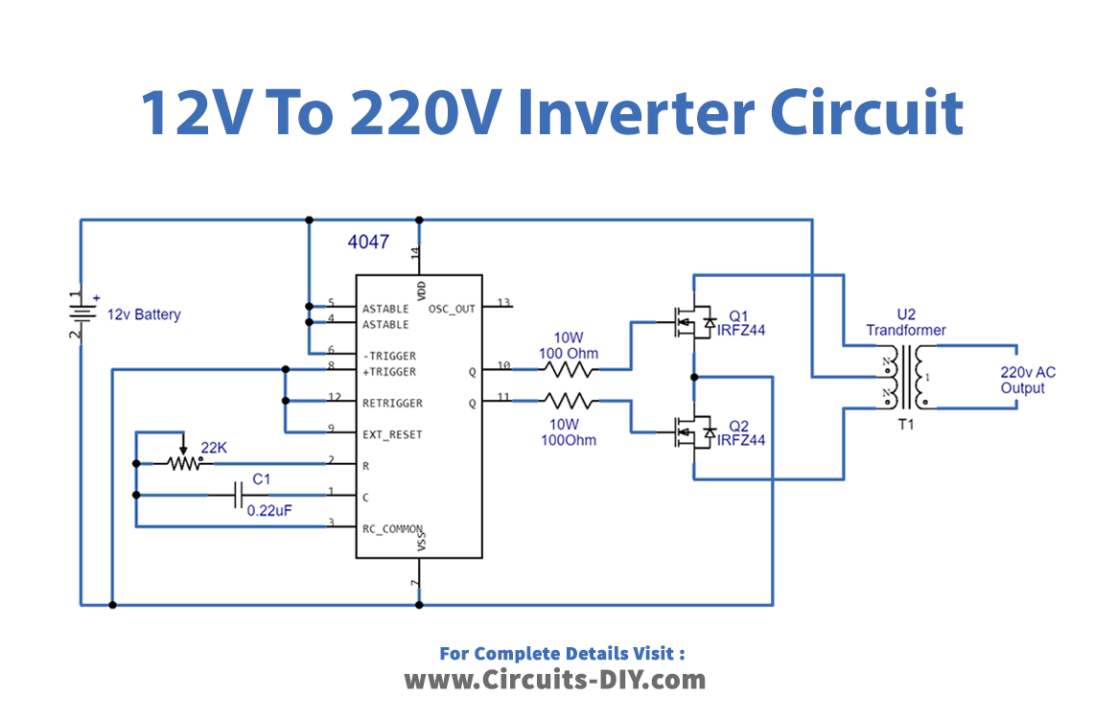
Working Explanation
In this 12 Volt to 220 Volt Inverter, through the help of some components like potentiometer and capacitor C1, the CD 4047 IC is configured in astable multivibrator mode. The output is taken at pins 10 and 11. by changing the value of the Variable Resistor you can get a different range of output pulse at pin 10 Q and pin 11 Q’ pins. This output is then given to the N channel MOSFETs whose drain pins are then connected to the transformer. When an alternate square pulse drives the wired MOSFETs, the secondary winding is forced to induce an alternate magnetic field. Now, this magnetic field is induced in the primary winding of the transformer and generates high alternate voltage.
Application and Uses
- It can be used to light up a single bulb or component that requires very little power.
- The electronics students can utilize this circuit in their small projects, having less power.


